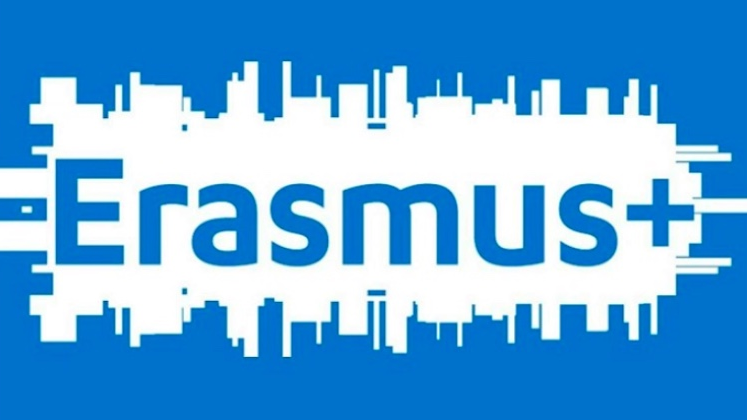Partners of the Erasmus+ project "Sprache MACHT Europa - Sprachenvielfalt als Ressource in Schule und LehrerInnenbildung" ("Language MAKES Europe* - Linguistic diversity as a resource in schools and in teacher education"), which deals with multilingualism in the school context, are three schools and three universities from three European countries (Germany, France, Austria) and Education Unlimited e.V., Germany. Recently, the Department of German Language and Literature of the University of Prishtina "Hasan Prishtina", namely the students of the MA study program "German as a foreign language" together with their teachers, has become part of this strategic partnership.
Partners of this project all together want to develop a transnational, intercultural school development concept for grades 3-6. This concept will be tested in bilingual and regular classrooms. Project partners understand the cultural and linguistic diversity of Europe as a constitutive feature of our continent, which must be understood as an opportunity and also as a resource and especially for schools. The aim of this project is to make the competence of language acquisition more usable for learners and thus to optimize it. To achieve this, targeted teaching and learning strategies will be designed within the framework of modern multilingual didactics.
Multilingual growing up of children and adolescents is reality in Europe and thus in the project partner countries Germany, France and Austria. Thus, language and its promotion is a great social and economic resource. With the recognition of all languages and promotion as foreign languages or languages of origin, not only does the ''employment probability'' of the next European generation increase, but language learning also simultaneously enables intercultural competences and, above all, the change of perspective and acceptance of the "other".
This project aims to develop concrete materials and concepts that can be implemented in any classroom. These materials should enable teachers to incorporate the above principles and competencies into their daily routines. CLIL, language reflection, metacompetence of language, translanguaging, collaborative learning, linguistic mediation, multilingual textual competencies, drama pedagogy, holistic creative development of all the linguistic resources play a great role in the transfer of multilingualism concepts from bilingual schools to regular schools. Some of the materials will be tested at locations in Kosovo (in DaF (German as a foreign language) school contexts as well as in teacher training). Multilingual curricula can be adapted to regional needs. The concepts will be integrated into the teacher training programs at the partner universities. As added value of this implementation and to promote their own intercultural competence, students of these four universities (KU, UNISTRA, PHS, UP) are networked with each other through the transnational lectures on multilingualism that were held online during the winter semester 2022-2023, which lectures will continue in the summer semester 2023.
Participant organizations in this project are: KATHOLISCHE UNIVERSITÄT EICHSTATT-INGOLSTADT (KU, Germany), UNIVERSITE DE STRASBOURG (UNISTRA, France), CPESCONSEIL PROTESTANT DE L'EDUCATION DE STRASBOURG (France), Pädagogische Hochschule Salzburg (PHS , Austria), Education Unlimited e.V. (Germany), Michael-Friedrich-Wild-Grundschule Müllheim (Germany), Volksschule Kufstein/Sparchen (Austria) and as a silent partner Department of German Language and Literature of University of Prishtina “Hasan Prishtina”.
*The German verb „macht“ (‘makes’) is also used here in the sense of the noun „Macht“ (‘power’), thus: “Language POWER Europe“.)
